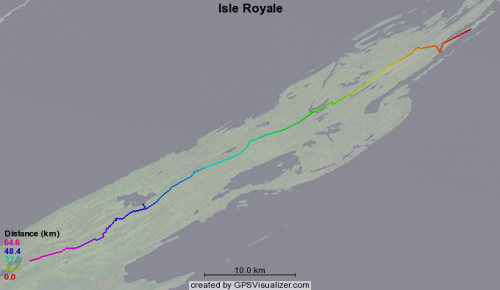I needed to implement the algorithm in Practical Traffic Analysis Extending and Resisting Statistical Disclosure in a hurry, so I turned to my old friend Perl. Later, when time permitted I re-did it in my new favorite language, Scala. Here's a quick look at how a few different pieces of the implementation differed in the two languages -- and really how idiomatic Perl and idiomatic Scala can look pretty similar when one gets past syntax.
Posts for: #Perl
Grand Central Direct Dialer
I'm a huge fan of Grand Central's call screening features. It's irksome, however, that they make it hard to dial outward -- sending your GC number instead of your cell number as the caller id. To do so you need to first add the target number to your address book, and often I'm calling someone I don't intend to call again often.
I started scripting up a way around that when I saw someone named Stewart already had.
Improving Nick Tracking using String Similarity
Years back I wrote an IRC nick tracking script. It's served me well since then, but it has one major annoyance. When people changed their name slightly it would remember that name change, even though the old/new mapping didn't contain any real identity change information.
For example, when Gabe_ became Gabe it would display every message from him as <Gabe_(Gabe)>. That doesn't tell me anything interesting about who Gabe is.
Isle Royal GPS Data
Earlier this month some friends and I hiked across Isle Royale in lake Superior. Joe kept his GPS running and produced good track points in an odd export format from his Mac software called "Topo". I created a quick conversion script to produce this GPS format data which can be used with the GPS visualizer website to produce images like this:

Garble To GPX Track Conversion
For years I've been using garble to pull track and way point data off of my Garmin eTrex GPS. Unfortunately it produces data in a completely non-standard format. In the past I've written a little custom software to turn the garble data into maps.
Now I'm using http://gpsvisualizer.com to produce much nicer maps, but it takes data in the superior GPX format. The GPSBabel software will pull way point data off of Garmin GPSs and puts them into GPX, but it doesn't handle tracks.
Obscuring MoinMoin Wiki Referrers
When you click on a link in your browser to go to a new web page your browser sends along a Referrer: header, which tells the owner of the site that's been linked to the URL of the site where the link was found. It's a nice little feature that helps website creators know who is linking to them. Referrer headers are easily faked or disabled, but in general most people don't bother, because there's generally no harm in telling a website owner who told you about their site.
Better Random Subject Lines
Earlier I talked about generating random Subject lines for emails. I settled on something that looked like Subject: Your email (1024) . Those were fine, but got dull quickly. By switching the procmail rules to look like:
:0 fhw * ^Subject:[\ ]*$ |formail -i "Subject: RANDOM: $(fortune -n 65 -s | perl -pe 's/\s+/ /g')" :0 fhw * !^Subject: |formail -i "Subject: RANDOM: $(fortune -n 65 -s | perl -pe 's/\s+/ /g')"
I'm now able to get random subject lines with a little more meat to them. They come out looking like: RANDOM: The coast was clear. -- Lope de Vega
Mail To Wiki Gateway
I wanted a way to quickly append text to Moin Moin wikis. I wrote a Perl script to do just that. It relies on the email address suffix features available in most modern MTAs to get the page name.
Once the procmail recipe included in the accompanying procmail.rc file is in place for the user 'wiki' email sent to wiki-TextHere@somewhere.com will be appended to the TextHere wiki page.
I cheaped out on the formatting and just put the text inside literal/pre blocksblocks. The subject line and from header are retained and displayed.
History of the World - Attack Probabilities
History of the World is a fine game from Avalon Hill. It's distributed by Hasbro now, and it's one of the rare Avalon Hill games that Hasbro managed to improve when they "cleaned it up".
History of the World uses dice to simulate combat, and they do so in a way so as to intentionally skew the likelihood of success toward the attacker. There are, however, various terrains (mountainous, ocean straight, forest), types of attack (amphibious), bonuses (strong leader, elite troops, forts, weaponry, etc.) which can affect the success rate of an attacker.
University of MN Magic Number Guessing
Back when I started at the University of Minnesota in 1995 the course registration system was terminal/telnet based. Students would register using a clumsy mainframe-style form interface. When a class a student wanted was full or required unsatisfied prerequisites, the student come supplicant would go to the department to beg for a "magic number" which, when input into the on-line registration system, would allow him or her admission into the course.